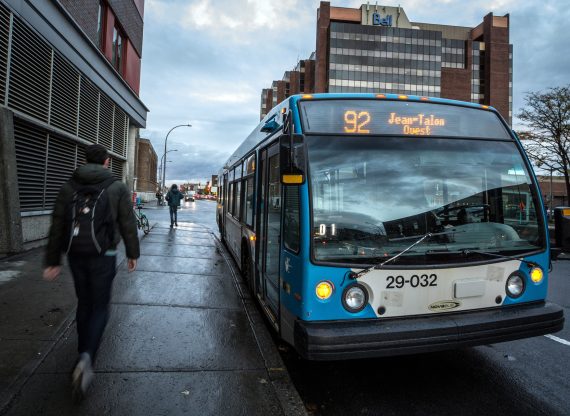Public transit funding: Reviewing bus driver compensation would cut the deficit in half

Montreal, November 6, 2023 – Bringing bus drivers’ compensation level in line with other positions in the same category would reduce transit agency spending by $250 million, says the Montreal Economic Institute.
“Just by reviewing bus driver compensation, the large public transit agencies could reduce their annual deficit by half,” explains Renaud Brossard, senior director of communications at the MEI. “It should not be up to Quebecers to pay for the poor management of these agencies.”
Quebec’s large municipalities estimate public transit agencies’ deficit will amount to $532 million for 2024. The provincial government, on the other hand, pegs it at $376.4 million.
Bus drivers and operators of metros and other public transit have the highest overall remuneration among employees whose jobs require a high school diploma in Quebec, according to the Institut de la statistique du Québec.
Looking at just public transit agency employees, the average hourly compensation of bus drivers and metro operators is $51.02, again according to the ISQ. This represents an average annual compensation of $106,652.
Other Quebec workers in the same job category, namely drivers of automobiles and public transit vehicles, had an average hourly wage of $35.74 in 2022, adjusting for the exceptional remuneration of bus drivers, according to the MEI’s calculations.
By bringing bus driver compensation back to these levels, public transit agencies would save a little over $250 million a year, estimates the MEI.
“Bus drivers are just the tip of the iceberg, when you consider the wage premium enjoyed by municipal employees in Quebec,” explains Mr. Brossard. “Before threatening to drastically cut bus frequency or metro operating hours, transit agencies should have another look at their budgets.”
In Quebec, municipal employees have average compensation that is 40.1 per cent higher than their counterparts working in the private sector, according to ISQ data.
Employee compensation is by far the biggest expense public transit agencies have, representing 66.6 per cent of the STM’s expenses, 59.1 per cent of the STL’s expenses, and 68.8 per cent of the RTC’s expenses, to give just a few examples.
* * *
The MEI is an independent public policy think tank with offices in Montreal and Calgary. Through its publications, media appearances, and advisory services to policy-makers, the MEI stimulates public policy debate and reforms based on sound economics and entrepreneurship.
– 30 –
Interview requests
Renaud Brossard
Senior Director, Communications
Cell. : 514 743-288
Image: Jerome – stock.adobe.com

